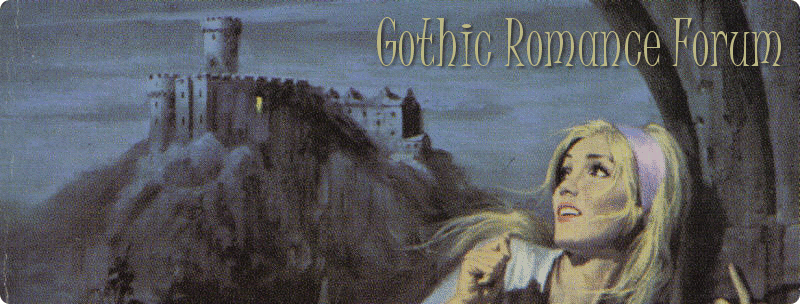paigenumber Wrote:I was browsing through eBay for gothic romances and saw that someone categorized Nathaniel Hawthorne’s “The Scarlet Letter†as a Gothic. I read that in high school and would have considered it more a tragedy than a gothic romance. Yes, it dealt with a lot of dark issues. I guess that’s why some would consider it a gothic romance. But if “The Scarlet Letter†is considered a Gothic, I would say that some of Thomas Hardy’s tragedies, namely “Tess of the D’Urbervillesâ€, should be one as well. What say you?
In my non-scholastic opinion, I think Nathaniel Hawthorne is a Gothic writer (although he also fits under many other categories). Is he a Gothic romance writer? Perhaps not, although it depends on how one defines "Gothic romance." Or even how one defines "romance."
I think there are two definitions of "Gothic romance" floating around on this site (maisonvivante and monique devereaux are discussing the same idea on another thread.) One is the 20th century romance which is a love story with varying levels of creepiness. Reader interest ranges from the tame romances of yesteryear a la Barbara Cartland, while some want more sexuality. But when you read histories of the Gothic, the REAL gothic romance, then I don't think they are really romances at all. For example, is the Castle of Otranto really about love? Is it a romance? Definitely not, in my opinion. It's 18th century horror.
To me, it's a Gothic novel if it has the Gothic mood. And I definitely think that Hawthorne has that dark mood in his novels. So, yes, I would include Thomas Hardy in there, as well as Wuthering Heights and Dracula and the Picture of Dorian Grey. Some people call Faulkner a Southern Gothic writer. In fact, I personally think MacBeth is the one truly Gothic work of Shakespeare. It's the mood and the worldview that is key.
To me, Gothic means untamed, passionate, dark, morally ambiguous, shocking and forbidden. It's the dark side of human nature, not the suspenseful romance where everything gets tied up in a little bow at the end. So I say, open the gates!




![[Image: wuther.jpg]](http://www.kudzumonthly.com/kudzu/oct01/wuther.jpg)